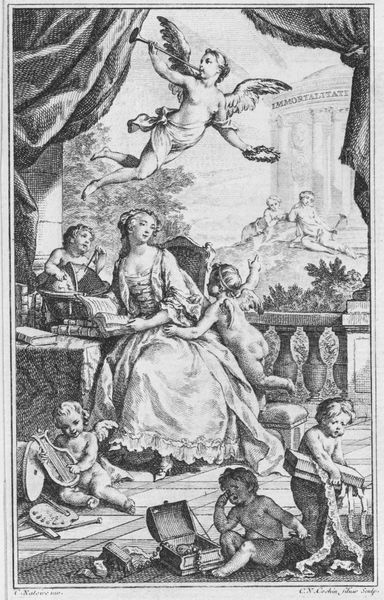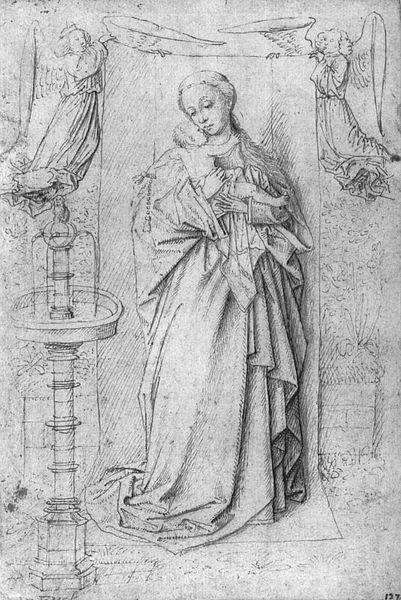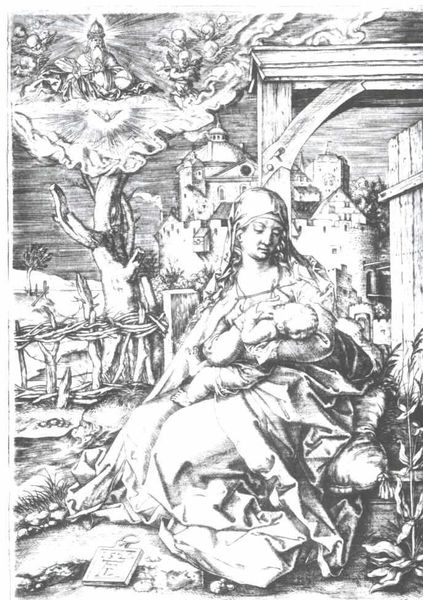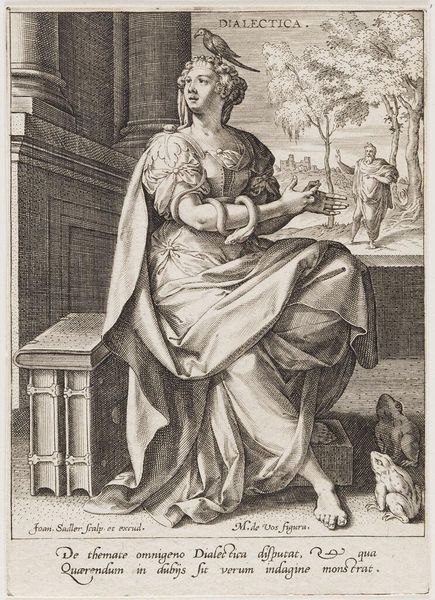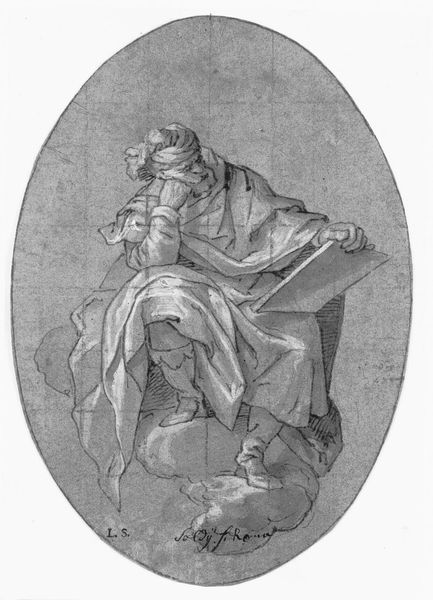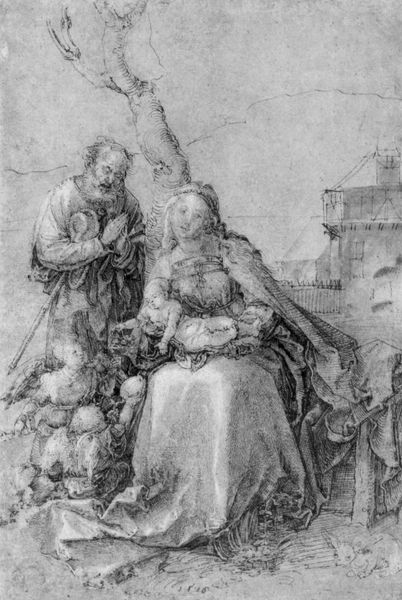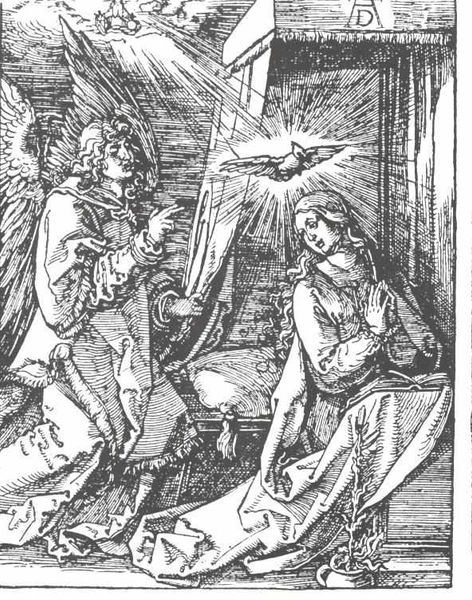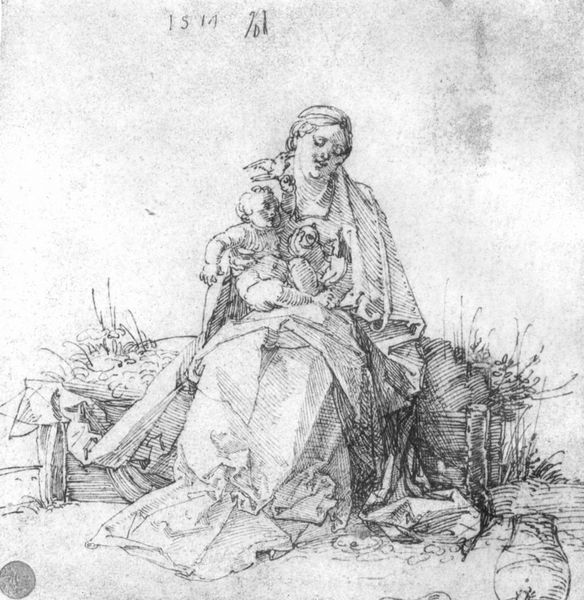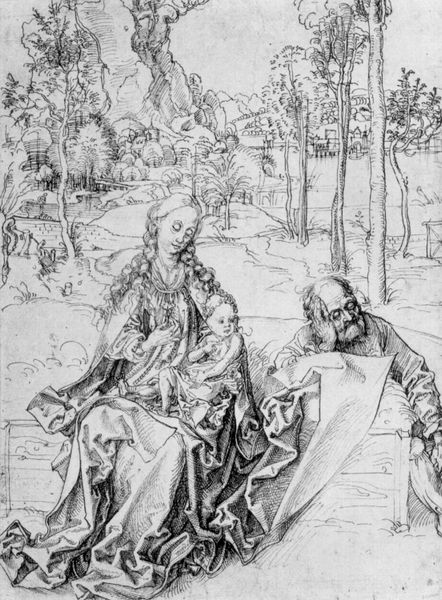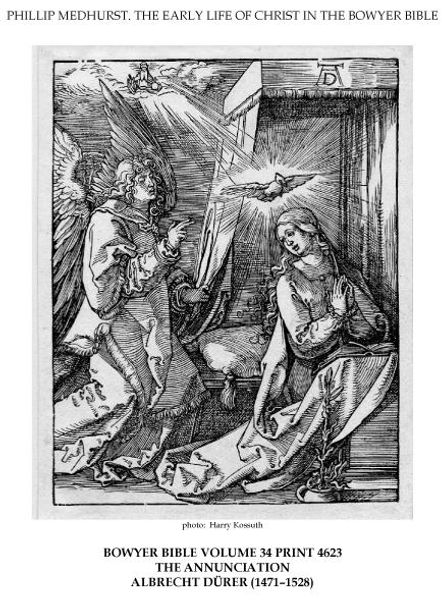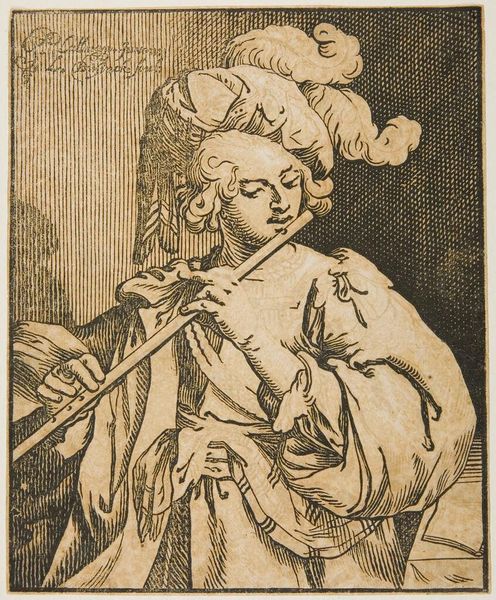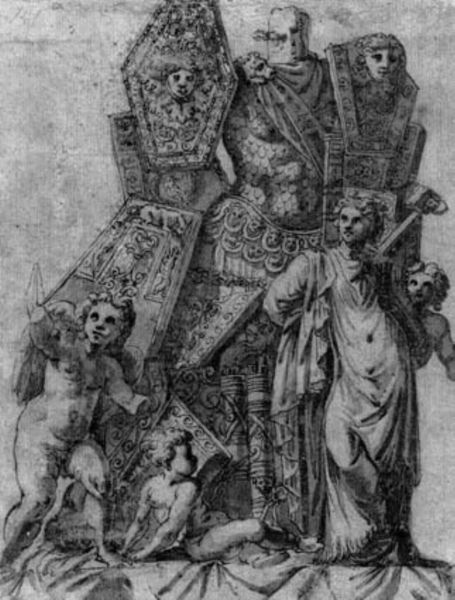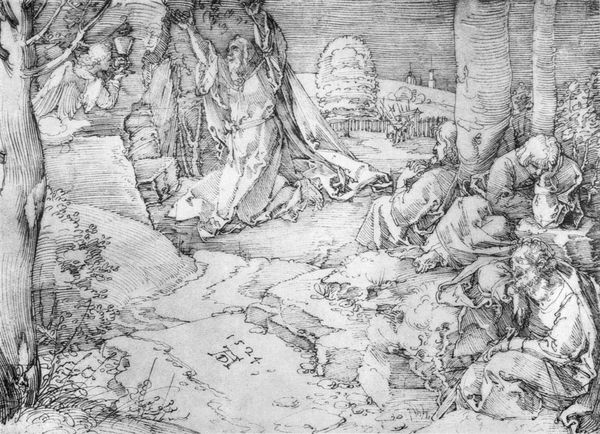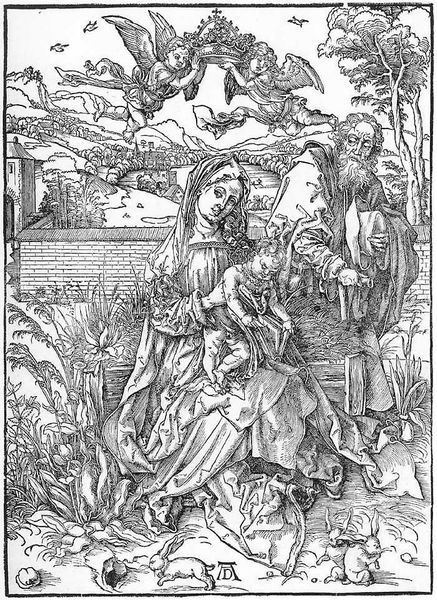
drawing, pen, engraving
#
portrait
#
drawing
#
pencil sketch
#
figuration
#
11_renaissance
#
sketch
#
pen-ink sketch
#
pen
#
history-painting
#
northern-renaissance
#
engraving
Copyright: Public domain
Editor: So this is Hans Baldung’s "Aristotle and Phyllis," an engraving from 1503. It looks almost like a pen-and-ink sketch. The composition strikes me as a little absurd – what's your interpretation of this piece? Curator: Indeed, the starkness of the medium certainly enhances the drama, doesn't it? On the surface, it presents a seemingly simple narrative: the philosopher Aristotle, reduced to riding like a horse for Phyllis. But what are the broader social critiques embedded here? It's from the Northern Renaissance – how does that influence its view on power, knowledge, and gender roles? Editor: So, you are saying that it's not just a comical scene, but a social commentary? Curator: Precisely. It’s tempting to view Phyllis merely as a temptress, a tool used to mock intellectualism, but I see the image as far more critical of established systems of power. Does the image implicitly critique Aristotle's authority, and perhaps, more broadly, question the wisdom of those in positions of influence? And consider the historical context: are we seeing early feminist sentiments bubbling to the surface? Editor: So by depicting Aristotle in such a compromising position, the artwork subtly undermines his authority and challenges the patriarchal structures of the time. Curator: Exactly. By inverting expectations – the powerful intellectual humbled by a woman – the artist might be prompting a reevaluation of gender dynamics and the very foundations upon which societal norms are built. What's the message here? Are we to assume it shows men or women's weakness in their dance of power? Editor: I hadn't considered that! Seeing it through that lens really does shift the entire meaning. I guess the simplicity of the style belies a far more complex commentary. Thanks, it definitely makes me consider power and authority, especially at that time. Curator: That’s what makes art so captivating. There is always something new to be learned!
Comments
No comments
Be the first to comment and join the conversation on the ultimate creative platform.
